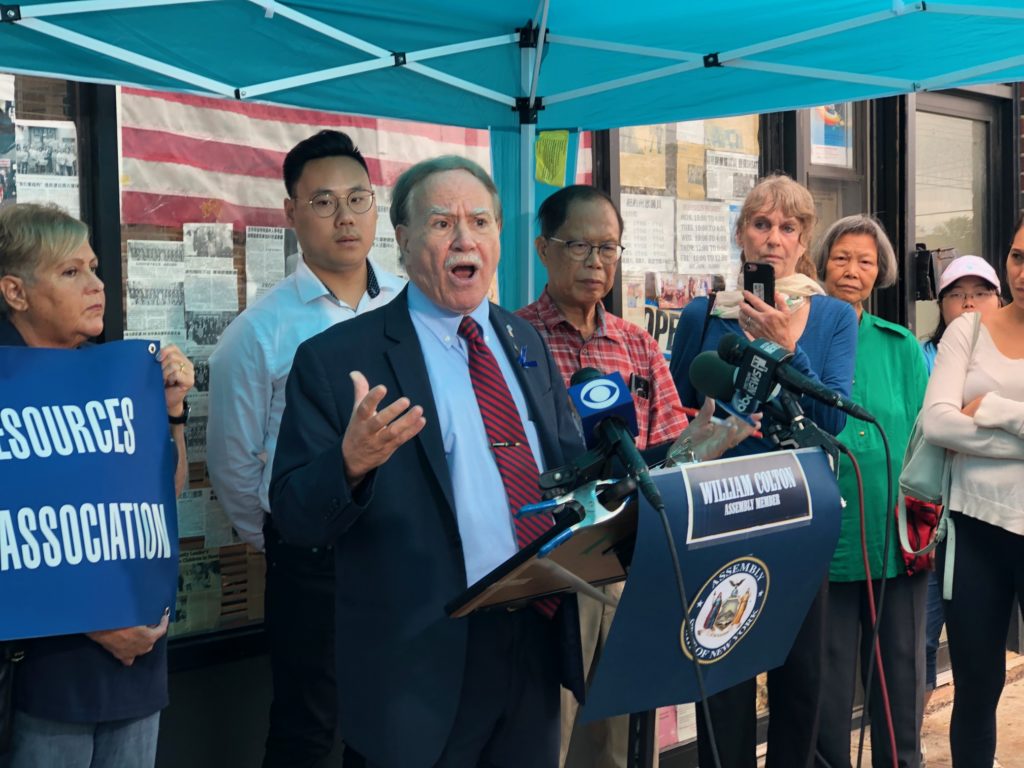Ending moratorium, National Grid still faces outcry in Brooklyn

Assemblymember William Colton at an August press conference. Photo: Paula Katinas/Brooklyn Eagle
National Grid’s announcement that it would do an about-face and end its moratorium on gas service to new customers didn’t impress two outspoken Brooklyn lawmakers who said the company is still likely to face backlash.
While Assemblymember William Colton and Councilmember Mark Treyger also said they were relieved when they learned that National Grid had decided to provide gas service to new customers and to reinstate service which had been turned off, they are continuing to urge the governor to seek out other suppliers.
Colton, a Democrat representing Gravesend and parts of Bensonhurst and Dyker Heights, credited Gov. Andrew Cuomo, who had threatened to strip National Grid of its monopoly, with getting the company to end its moratorium.
